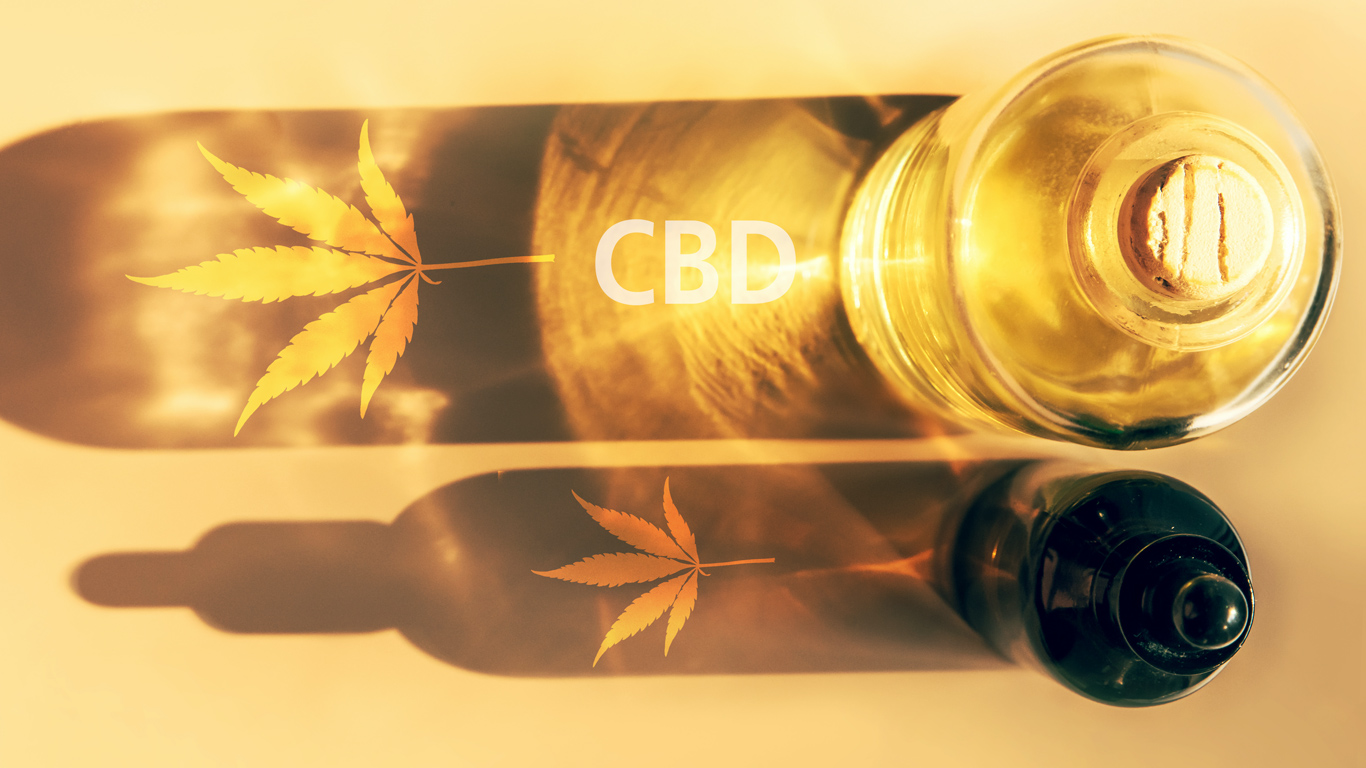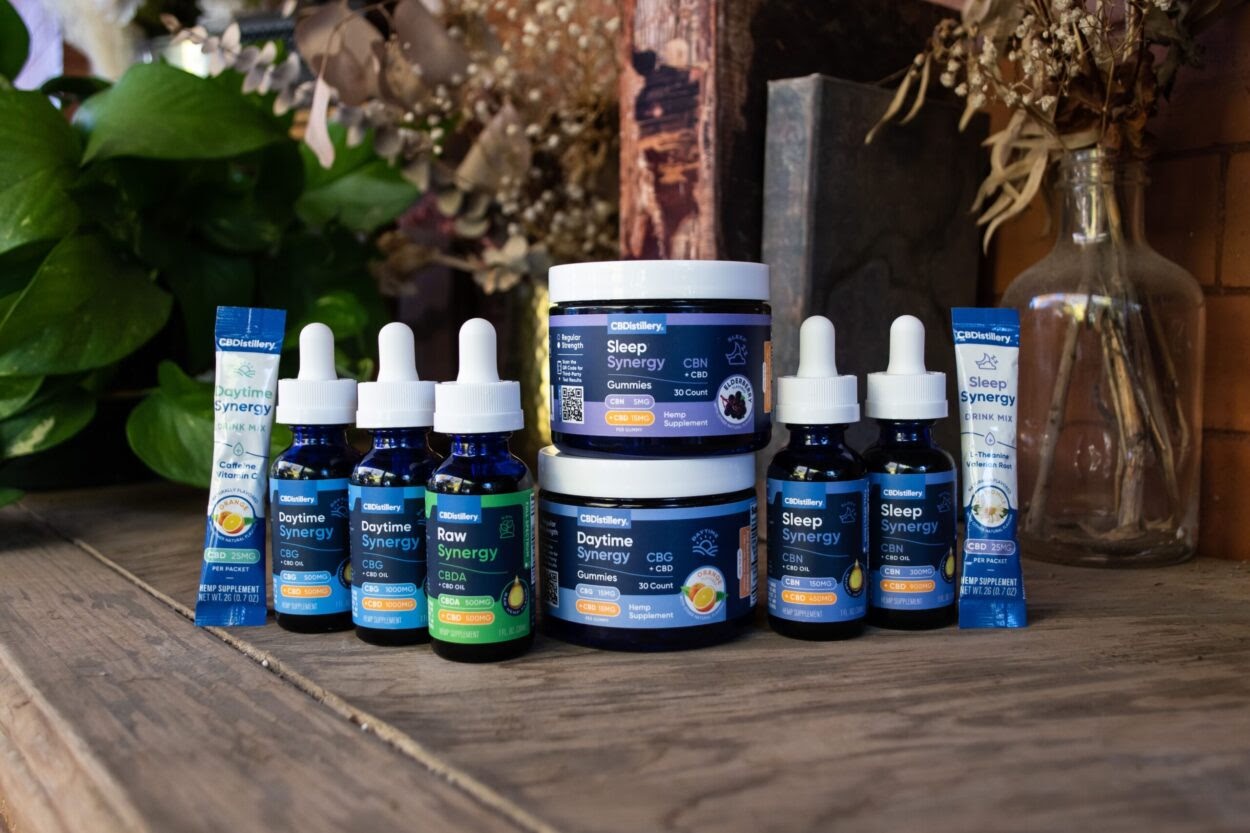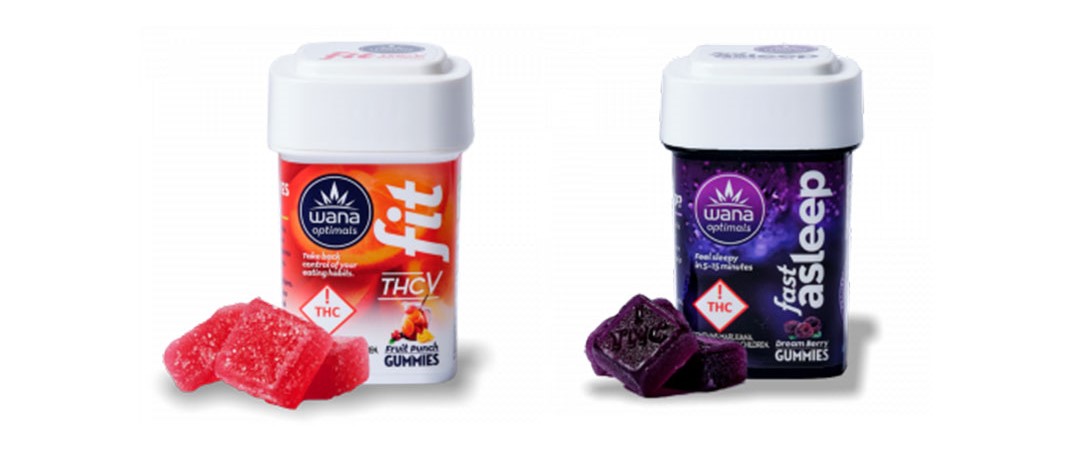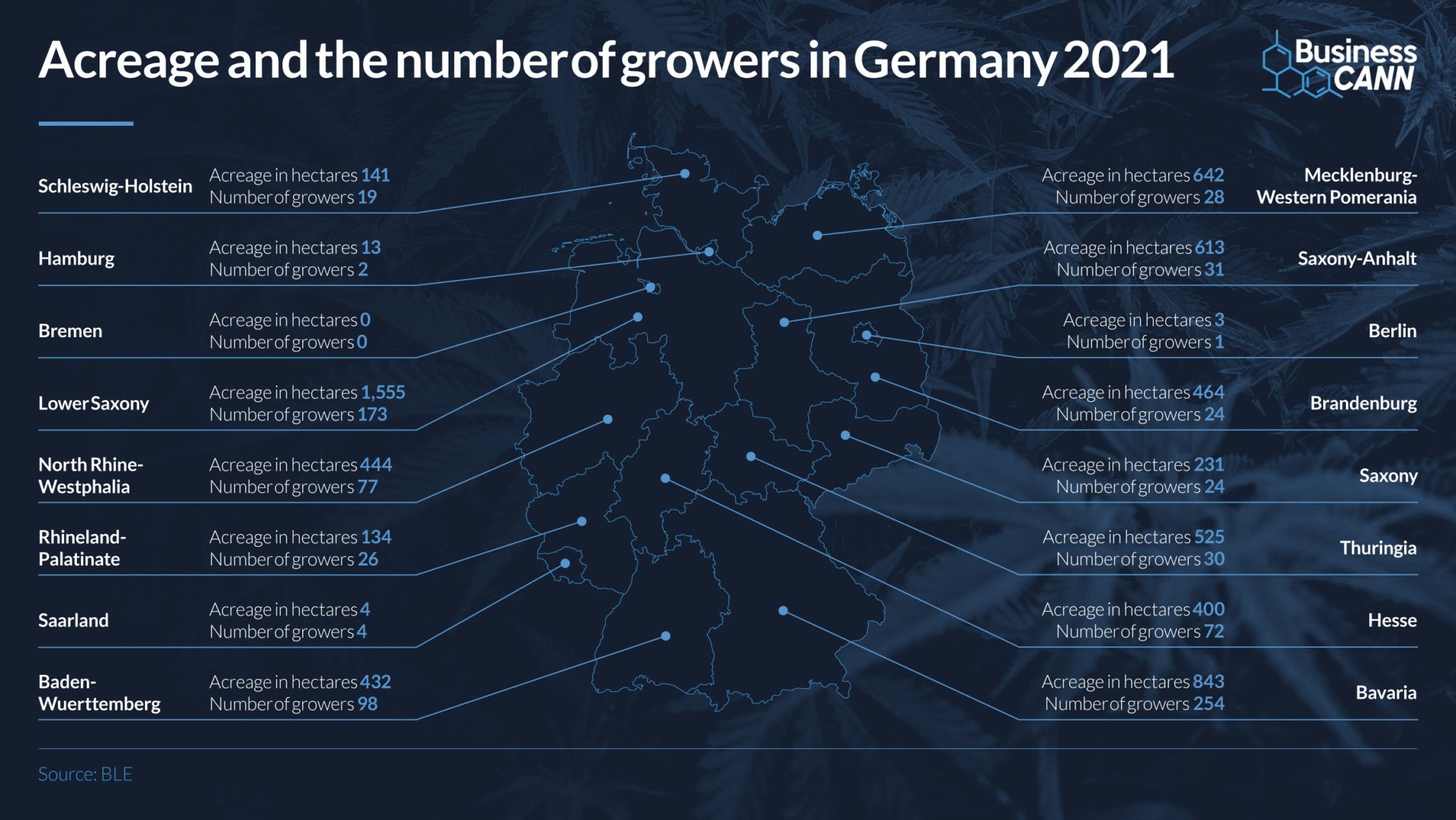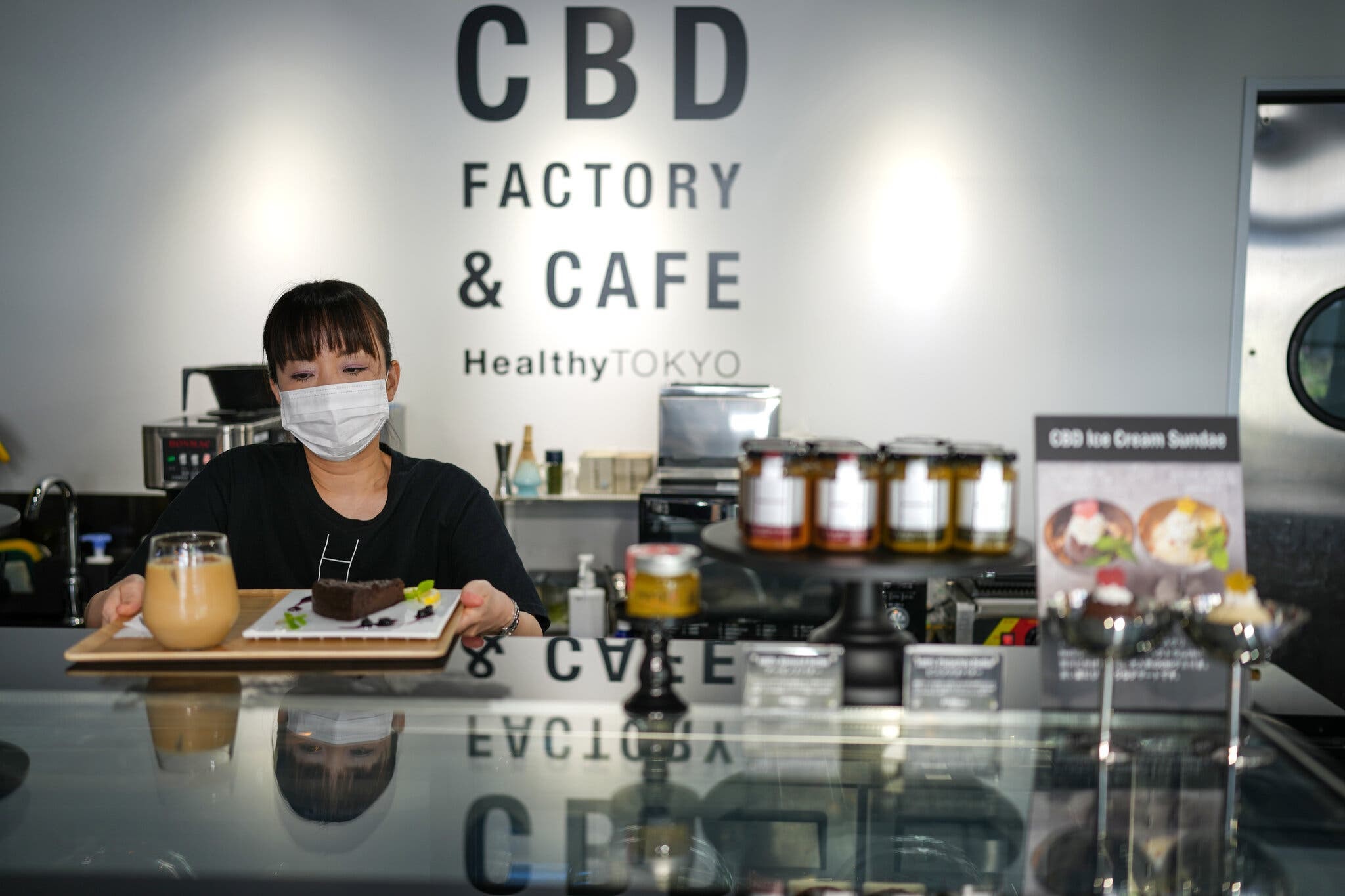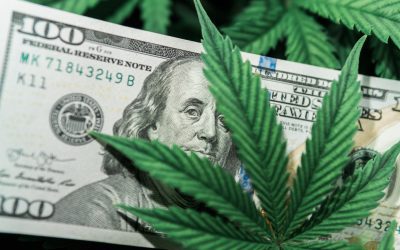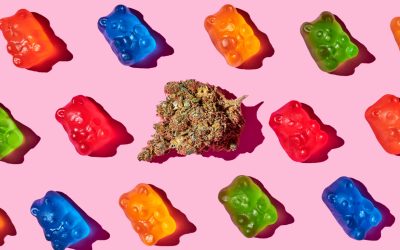Author: Nicole Brown
November 8 – 10 min read
What’s new, what’s next, and what it means for our business.
Published monthly, the OBX Innovation Briefing is presented by the OBX team as a way of highlighting the latest developments and innovations within the global cannabinoid industry. Each curated volume features insights and commentary on industry and category trends, regulatory updates, key initiatives, and upcoming events.
Brand News
Legacy Cannabis Edibles Brand Cheeba Chews Releases THCV Charged Energy Chew
-
Cannabis-infused edibles brand Cheeba Chews announced the launch of its newest option for everyday cannabinoid wellness, the THCV-Charged Energy Chew. With a 2:1 ratio (5mg of THC to 2.5mg of THCV) in each piece, consumers can enjoy a consistent source of plant-based energy unique to the Colorado market. The distinctive blend of THC and tetrahydrocannabivarin (THCV) is enhanced with 5mg of caffeine (about one decaf cup) to provide a stimulating boost of energy.
- The THCV Energy Chew is the latest addition to Cheeba Chews’ Wellness Line that integrates unique cannabinoid combinations into its classic taffies. The “Morning, Noon and Night” suite includes the 1:1:1 Be Happy Trifecta Caramel Taffy (5mg each of CBG / CBD / THC) and the 2:1 Sleepy Chew Chocolate Taffy (5mg THC / 2.5mg CBN).
Balanced Health Botanicals™ Launches Synergy Collection Expanding CBDistillery Product Portfolio
-
Balanced Health Botanicals™ (BHB), a family of hemp-derived CBD brands including their flagship brand CBDistillery, announced today the launch of their Synergy Collection, which consists of the brand’s first ever CBD + Functional Mushroom (non-hallucinogenic), Kava Root*, and Cannabidiolic acid (CBDA) products, along with CBDistillery’s™ top-selling Cannabigerol (CBG) & Cannabinol (CBN) formulations. The Synergy Collection was developed to enhance the multitude of benefits offered by the hemp plant – beyond CBD alone.
-
The Synergy Collection by CBDistillery™ introduces a new line of tinctures, vegan-friendly capsules, and drink mixes, as well as all-new CBG + CBD and CBN + CBD gummies across four categories: Daytime Synergy, Sleep Synergy, Raw Synergy and Wellness Synergy.
Wana Brands Launches New THCV “FIT” Gummies to Support Healthier Habits
-
Following the Colorado launch of Wana Optimals Fast Asleep in September, Wana Optimals Fit Gummies represent the second product in the new Wana Optimals line, a Wana Brands suite of daily wellness products powered by rare and major cannabinoids, terpenes, and other plant-based ingredients to help people achieve important health goals, such as sound sleep and curb appetite, through the power of plants.
-
The active ingredient in Wana Optimals Fit is a rare cannabinoid known as THCV. While it is only one letter off from THC—the active ingredient in marijuana—THCV actually produces the opposite effects. While THC creates a euphoric high and famously stimulates hunger, or “the munchies,” THCV has been shown to enhance focus, lift energy and actually curb appetite, all without any intoxication.
Canopy Growth to Pay $297.5 Million for Right to Acquire Wana Brands
-
Canopy Growth Corporation and Mountain High Products, LLC, Wana Wellness, LLC and The Cima Group, LLC are pleased to announce that they have entered into definitive agreements providing Canopy Growth with the right, upon federal permissibility of THC in the U.S., to acquire 100% of the outstanding membership interests of Wana, the #1 cannabis edibles brand in North America by market share.
-
Wana manufactures and sells gummies in the U.S. state of Colorado and licenses its intellectual property to partners, who manufacture, distribute, and sell Wana-branded gummies across the U.S., including California, Arizona, Illinois, Michigan, and Florida giving Wana a total footprint of 12 U.S. states currently, and across Canada. Wana expects to have license agreements in place in more than 20 U.S. states, including in future adult-use markets in New York and New Jersey, prior to the end of calendar 2022.
Irwin Naturals to Enter the THC Side of the Cannabis Market
-
Irwin intends to enter the North American cannabis industry by licensing its household brand name to licensed third parties that manufacture products containing tetrahydrocannabinol (“THC”). Details of the Irwin Naturals Cannabis product lineup and the timing of the launch will be communicated in due course. However, the Company is planning the overall launch of Irwin Naturals Cannabis to the continental cannabis market in late 2021 or early 2022.
Industry & Regulatory Updates
Brazil: Anvisa Authorizes The Import Of 249 Cannabis Derivatives. 5 Are THC
-
The National Health Surveillance Agency (Anvisa) approved 249 cannabis derivatives for import into Brazil, of which five have THC and the remaining CBD. Authorized products follow a new resolution, with simpler rules for individual importation by Brazilian patients, but Anvisa clarifies that “it did not evaluate the efficacy, quality or safety of the products”, referring to the legislation of the countries of origin.
-
The list of authorized cannabis products was sent exclusively by Anvisa to the Cannabis & Saúde portal, in early October, and includes the brands that will have automatic approval from the agency for individual importation by patients in Brazil. There are 249 products from dozens of different brands, mostly from Europe and the United States, but also from brands operating abroad. Of these, only 5 products have THC. Almost all products are oils and extracts, but there are also some creams, lotions, and a spray.
Pakistan to Announce Cannabis Cultivation Policy by December
-
Pakistani Minister of Science and Technology Shibli Faraz has announced the presentation of the policy for growing cannabis in the country by December of this year.
-
Officials informed the committee that they would start growing Cannabis for industrial purposes first. As a first step, raw materials for cannabis will be imported and greenhouses will be built in Lahore, Karachi and Islamabad.
German Hemp Farm Numbers Up 900% In Seven Years – As industry Calls For Post-Election Reform
-
The number of German farms growing industrial hemp has hit 863 – the highest figure since the federal republic legalized the cultivation of the crop in 1996. This is a year-on-year increase of 172 farms compared to 2020; and more than a tenfold rise on the 86 operating in 2013.
-
Of greater bearing would be lifting the current maximum 0.2% Delta-9 Tetrahydrocannabinol (THC) content allowed for industrial hemp. Under current legislation, any crop exceeding the 0.2% THC limit has to be destroyed. In November last year, the EU signified its intent to raise the requisite THC percentage for industrial hemp from 0.2% to 0.3%, bringing it into line with America.
-
Interest in hemp-based products such as seeds, oil, flours, cereals and cereal bars and CBD as a treatment for health issues like arthritis, insomnia, epilepsy and anxiety, has also been growing in Germany, especially in the organic sector.
Switzerland to Legalize Recreational and Medical Cannabis
-
Cannabis legalization in Switzerland is on the move as plans are announced to introduce a bill that would reform the country’s drug policy after two parliamentary commissions recommend that cannabis should no longer be banned.
-
The proposed reforms would allow the production, cultivation, trade and consumption of cannabis. For hemp cultivation, cannabis plants with a concentration of 1% THC are permitted.
Trend Pieces & Editorial
Japan Stays Tough on Cannabis as Other Nations Loosen Up
-
Some Japanese who have gone abroad and been exposed to the benefits of cannabis derivatives, particularly CBD, are hoping Japan will change course. But the government shows little inclination.
-
CBD is legal in Japan, thanks to a regulatory loophole, and its purported properties — ranging from suppressing inflammation to encouraging relaxation and sleep — make it an attractive product. Analysts estimate that annual demand for the supplement in Japan could grow to $800 million by 2024.
-
Japan is a beguiling market — The world’s third-largest economy and grayest society, the country offers an ideal demographic: health-conscious, aging consumers with abundant disposable income and a bottomless appetite for supplements that promise to balm their ills. But Japan also has some of the most restrictive cannabis laws in East Asia, a region known for its intolerance of drugs.
Is The European Commission Set To Review Its Position On CBD And Once More Deem It A Narcotic Drug?
-
Despite re-launching its ‘natural’ CBD Novel Food applications process eleven months ago, no progress has yet been made by the European Commission.
-
It has approved further synthetic CBD applications with a total of five such applications now through to the Validation phase and currently under the risk assessment by the European Food Safety Authority.
-
However, the lack of progress with the 130-plus ‘natural’ CBD extract applications has left some observers concerned it is about to undertake a damaging U-turn on the status of CBD.
-
And, the on-going ruminations of the International Narcotics Control Board (INCB) are fueling the industry’s growing pessimism: “Last summer the EC switched their position saying they viewed CBD as a Schedule I narcotic drug within the meaning of the UN Single Convention. Then following the KanaVape decision, they concluded cannabidiol cannot be considered a drug if manufactured lawfully in another EU Member state.”
Current State of the CBD Beauty Opportunity
-
The bigger development is CBD making way for its cannabinoid siblings. Cannabinoids such as CBG (cannabigerol) and CBN (cannabinol) present the next generation of actives.
-
Searches for CBG are growing +20.5% since last year, constituting 67K searches per month, mostly in the form of oil, flowers, tinctures, and gummies. Searches for CBN (cannabinol) oil are at an average of 5.4K searches, with a little less than half being for “CBN for sleep.”
Don’t Give Up On Market Opportunities for Minor Cannabinoids
-
The industry should focus on exploring more of the hemp-derived cannabinoids to determine whether they 1) Are non intoxicating and 2) hold potential to be commercialized. Cannabinoids that meet these criteria are likely to be legal under the Farm Bill and are unlikely to draw the interest of the DEA. They, therefore, hold quite a lot of potential to expand the legal market.
-
There is space for FDA approval for cannabinoids that aren’t THC or CBD to be included in dietary supplements and/or food. However, such substances aren’t permitted to be included in food or dietary supplements until they have gone through the relevant FDA processes for a required food additive petition – namely, attaining an evaluated GRAS (generally recognized as safe) for food products or “new dietary ingredient” notification for dietary supplements.
-
Obtaining the FDA’s approval to add these emerging cannabinoids gives legitimacy to the market while reducing the risk of enforcement.
Category & Research Trends
-
Cannabichromene (CBC) is an understudied cannabinoid with preclinical benefits on pain, inflammation, and depression.
-
Canopy Growth Corporation’s paper on the first pharmacokinetic study of CBC in humans is now published and available open access, demonstrating how CBC may have preferential absorption over CBD and THC when administered together.
Study: Mixing CBD With Ketamine Might Be Great For Depression
-
What if you could limit the negative side effects of Ketamine while still preserving the therapeutic potential? According to recently published research, by mixing ketamine with cannabidiol, or CBD, the less-psychoactive cannabinoid associated with anti-anxiety and anti-inflammatory benefits, it may be possible to do just that.
-
Noting that CBD and ketamine seemed to activate the same receptor in the brain, a team of researchers at the University of São Paulo in Brazil administered doses of ketamine and CBD to mice, ranging from 2.5 to 30 milligrams per kilogram of body weight. Some mice received both drugs, some just received one or the other.
-
The male mice who received both ketamine and CBD performed well enough on movement tests to suggest that the CBD acted as a modulator that blocked certain “psycho locomotor changes” while still granting the antidepressant benefits.
-
“Our results show for the first time that the antidepressant-like effect of CBD, similar to ketamine, depends on the activation of AMPA receptors,” the authors wrote in their findings, published in the journal Neuropharmacology in December..
-
Since the World Health Organization believes that by 2030, depression will be the leading cause of disability worldwide, new and effective clinical treatments are vital. For a country like the United States slowly but surely accepting the potential of both cannabis and ketamine to treat profound ailments like depression—while also on the hunt for effective treatments with little-to-no side effects—a viable CBD-ketamine cocktail is an exciting proposition.
There’s a Beautiful Molecular Relationship Between Cannabis and Caffeine
-
Adenosine, cannabinoids, & Neural Transmission: This beautiful molecular relationship acts via the control and regulation of excitatory & inhibitory neural transmission in the brain.
-
Molecular protein targets of caffeine are adenosine A1 receptors, ubiquitously located presynaptically on the excitatory (pyramidal) neurons. Adenosine dampens excitatory glutamate release and caffeine stimulates excitatory glutamate signaling – waking you up! A1 is also expressed densely in the heart – too much caffeine may race your heart rhythm.
-
Cannabinoid CB1 receptors are found in both the excitatory glutamate & inhibitory GABA synapses. Depending on which cannabinoid is used, its effect on CB1 will vary. CB2 activation will regulate slower processes, like glutamate metabolism by glia or pro-inflammatory cytokine release.
Could Cannabis Help with Menopause Symptoms? Here’s What Experts Say
-
A study from 2020 found that nearly 27% of people in menopause used cannabis to ease symptoms.
-
“Historically, women’s health, things that affect women’s health, tend to be under-researched and underfunded, but we do know there are good treatments to deal with the symptoms of menopause, whether it’s vaginal dryness or hot flushes or mood disturbances,” Dr. Jennifer Lincoln said. “They are well studied. We know the doses and formulations.”
Upcoming Events & Webinars
-
Luxury Meets Cannabis (November 11 & 12, NYC)
-
Next Level Summit: Food Quality Symposium (December 6 – 8, Indian Wells, CA)
-
CannaVest West (December 16 & 17, San Francisco, CA)
Got Innovation? If you see an interesting new brand, trend or other innovative idea, please feel free to share directly to nicole@openbookextracts.
Author: Nicole Brown
October 11 – 10 min read
What’s new, what’s next, and what it means for our business.
Published monthly, the OBX Innovation Briefing is presented by the OBX team as a way of highlighting the latest developments and innovations within the global cannabinoid industry. Each curated volume features insights and commentary on industry and category trends, regulatory updates, key initiatives, and upcoming events.
Brand News
Legacy Cannabis Edibles Brand Cheeba Chews Releases THCV Charged Energy Chew
-
Cannabis-infused edibles brand Cheeba Chews announced the launch of its newest option for everyday cannabinoid wellness, the THCV-Charged Energy Chew. With a 2:1 ratio (5mg of THC to 2.5mg of THCV) in each piece, consumers can enjoy a consistent source of plant-based energy unique to the Colorado market. The distinctive blend of THC and tetrahydrocannabivarin (THCV) is enhanced with 5mg of caffeine (about one decaf cup) to provide a stimulating boost of energy.
-
The THCV Energy Chew is the latest addition to Cheeba Chews’ Wellness Line that integrates unique cannabinoid combinations into its classic taffies. The “Morning, Noon and Night” suite includes the 1:1:1 Be Happy Trifecta Caramel Taffy (5mg each of CBG / CBD / THC) and the 2:1 Sleepy Chew Chocolate Taffy (5mg THC / 2.5mg CBN).
Balanced Health Botanicals™ Launches Synergy Collection Expanding CBDistillery Product Portfolio
-
Balanced Health Botanicals™ (BHB), a family of hemp-derived CBD brands including their flagship brand CBDistillery, announced today the launch of their Synergy Collection, which consists of the brand’s first ever CBD + Functional Mushroom (non-hallucinogenic), Kava Root*, and Cannabidiolic acid (CBDA) products, along with CBDistillery’s™ top-selling Cannabigerol (CBG) & Cannabinol (CBN) formulations. The Synergy Collection was developed to enhance the multitude of benefits offered by the hemp plant – beyond CBD alone.
-
The Synergy Collection by CBDistillery™ introduces a new line of tinctures, vegan-friendly capsules, and drink mixes, as well as all-new CBG + CBD and CBN + CBD gummies across four categories: Daytime Synergy, Sleep Synergy, Raw Synergy and Wellness Synergy.
Wana Brands Launches New THCV “FIT” Gummies to Support Healthier Habits
-
Following the Colorado launch of Wana Optimals Fast Asleep in September, Wana Optimals Fit Gummies represent the second product in the new Wana Optimals line, a Wana Brands suite of daily wellness products powered by rare and major cannabinoids, terpenes, and other plant-based ingredients to help people achieve important health goals, such as sound sleep and curb appetite, through the power of plants.
-
The active ingredient in Wana Optimals Fit is a rare cannabinoid known as THCV. While it is only one letter off from THC—the active ingredient in marijuana—THCV actually produces the opposite effects. While THC creates a euphoric high and famously stimulates hunger, or “the munchies,” THCV has been shown to enhance focus, lift energy and actually curb appetite, all without any intoxication.
Canopy Growth to Pay $297.5 Million for Right to Acquire Wana Brands
-
Canopy Growth Corporation and Mountain High Products, LLC, Wana Wellness, LLC and The Cima Group, LLC are pleased to announce that they have entered into definitive agreements providing Canopy Growth with the right, upon federal permissibility of THC in the U.S., to acquire 100% of the outstanding membership interests of Wana, the #1 cannabis edibles brand in North America by market share.
-
Wana manufactures and sells gummies in the U.S. state of Colorado and licenses its intellectual property to partners, who manufacture, distribute, and sell Wana-branded gummies across the U.S., including California, Arizona, Illinois, Michigan, and Florida giving Wana a total footprint of 12 U.S. states currently, and across Canada. Wana expects to have license agreements in place in more than 20 U.S. states, including in future adult-use markets in New York and New Jersey, prior to the end of calendar 2022.
Irwin Naturals to Enter the THC Side of the Cannabis Market
-
Irwin intends to enter the North American cannabis industry by licensing its household brand name to licensed third parties that manufacture products containing tetrahydrocannabinol (“THC”). Details of the Irwin Naturals Cannabis product lineup and the timing of the launch will be communicated in due course. However, the Company is planning the overall launch of Irwin Naturals Cannabis to the continental cannabis market in late 2021 or early 2022.
Industry & Regulatory Updates
Brazil: Anvisa Authorizes The Import Of 249 Cannabis Derivatives. 5 Are THC
-
The National Health Surveillance Agency (Anvisa) approved 249 cannabis derivatives for import into Brazil, of which five have THC and the remaining CBD. Authorized products follow a new resolution, with simpler rules for individual importation by Brazilian patients, but Anvisa clarifies that “it did not evaluate the efficacy, quality or safety of the products”, referring to the legislation of the countries of origin.
-
The list of authorized cannabis products was sent exclusively by Anvisa to the Cannabis & Saúde portal, in early October, and includes the brands that will have automatic approval from the agency for individual importation by patients in Brazil. There are 249 products from dozens of different brands, mostly from Europe and the United States, but also from brands operating abroad. Of these, only 5 products have THC. Almost all products are oils and extracts, but there are also some creams, lotions, and a spray.
Pakistan to Announce Cannabis Cultivation Policy by December
-
Pakistani Minister of Science and Technology Shibli Faraz has announced the presentation of the policy for growing cannabis in the country by December of this year.
-
Officials informed the committee that they would start growing Cannabis for industrial purposes first. As a first step, raw materials for cannabis will be imported and greenhouses will be built in Lahore, Karachi and Islamabad.
German Hemp Farm Numbers Up 900% In Seven Years – As industry Calls For Post-Election Reform
-
The number of German farms growing industrial hemp has hit 863 – the highest figure since the federal republic legalized the cultivation of the crop in 1996. This is a year-on-year increase of 172 farms compared to 2020; and more than a tenfold rise on the 86 operating in 2013.
-
Of greater bearing would be lifting the current maximum 0.2% Delta-9 Tetrahydrocannabinol (THC) content allowed for industrial hemp. Under current legislation, any crop exceeding the 0.2% THC limit has to be destroyed. In November last year, the EU signified its intent to raise the requisite THC percentage for industrial hemp from 0.2% to 0.3%, bringing it into line with America.
-
Interest in hemp-based products such as seeds, oil, flours, cereals and cereal bars and CBD as a treatment for health issues like arthritis, insomnia, epilepsy and anxiety, has also been growing in Germany, especially in the organic sector.
Switzerland to Legalize Recreational and Medical Cannabis
-
Cannabis legalisation in Switzerland is on the move as plans are announced to introduce a bill that would reform the country’s drug policy after two parliamentary commissions recommend that cannabis should no longer be banned.
-
The proposed reforms would allow the production, cultivation, trade and consumption of cannabis. For hemp cultivation, cannabis plants with a concentration of 1% THC are permitted.
Trend Pieces & Editorial
Japan Stays Tough on Cannabis as Other Nations Loosen Up
-
Some Japanese who have gone abroad and been exposed to the benefits of cannabis derivatives, particularly CBD, are hoping Japan will change course. But the government shows little inclination.
-
CBD is legal in Japan, thanks to a regulatory loophole, and its purported properties — ranging from suppressing inflammation to encouraging relaxation and sleep — make it an attractive product. Analysts estimate that annual demand for the supplement in Japan could grow to $800 million by 2024.
-
Japan is a beguiling market — The world’s third-largest economy and grayest society, the country offers an ideal demographic: health-conscious, aging consumers with abundant disposable income and a bottomless appetite for supplements that promise to balm their ills. But Japan also has some of the most restrictive cannabis laws in East Asia, a region known for its intolerance of drugs.
Is The European Commission Set To Review Its Position On CBD And Once More Deem It A Narcotic Drug?
-
Despite re-launching its ‘natural’ CBD Novel Food applications process eleven months ago, no progress has yet been made by the European Commission.
-
It has approved further synthetic CBD applications with a total of five such applications now through to the Validation phase and currently under the risk assessment by the European Food Safety Authority.
-
However, the lack of progress with the 130-plus ‘natural’ CBD extract applications has left some observers concerned it is about to undertake a damaging U-turn on the status of CBD.
-
And, the on-going ruminations of the International Narcotics Control Board (INCB) are fueling the industry’s growing pessimism: “Last summer the EC switched their position saying they viewed CBD as a Schedule I narcotic drug within the meaning of the UN Single Convention. Then following the KanaVape decision, they concluded cannabidiol cannot be considered a drug if manufactured lawfully in another EU Member state.”
Current State of the CBD Beauty Opportunity
-
The bigger development is CBD making way for its cannabinoid siblings. Cannabinoids such as CBG (cannabigerol) and CBN (cannabinol) present the next generation of actives.
-
Searches for CBG are growing +20.5% since last year, constituting 67K searches per month, mostly in the form of oil, flowers, tinctures, and gummies. Searches for CBN (cannabinol) oil are at an average of 5.4K searches, with a little less than half being for “CBN for sleep.”
Don’t Give Up On Market Opportunities for Minor Cannabinoids
-
The industry should focus on exploring more of the hemp-derived cannabinoids to determine whether they 1) Are non intoxicating and 2) hold potential to be commercialized. Cannabinoids that meet these criteria are likely to be legal under the Farm Bill and are unlikely to draw the interest of the DEA. They, therefore, hold quite a lot of potential to expand the legal market.
-
There is space for FDA approval for cannabinoids that aren’t THC or CBD to be included in dietary supplements and/or food. However, such substances aren’t permitted to be included in food or dietary supplements until they have gone through the relevant FDA processes for a required food additive petition – namely, attaining an evaluated GRAS (generally recognized as safe) for food products or “new dietary ingredient” notification for dietary supplements.
-
Obtaining the FDA’s approval to add these emerging cannabinoids gives legitimacy to the market while reducing the risk of enforcement.
Category & Research Trends
-
Cannabichromene (CBC) is an understudied cannabinoid with preclinical benefits on pain, inflammation, and depression.
-
Canopy Growth Corporation’s paper on the first pharmacokinetic study of CBC in humans is now published and available open access, demonstrating how CBC may have preferential absorption over CBD and THC when administered together.
Study: Mixing CBD With Ketamine Might Be Great For Depression
-
What if you could limit the negative side effects of Ketamine while still preserving the therapeutic potential? According to recently published research, by mixing ketamine with cannabidiol, or CBD, the less-psychoactive cannabinoid associated with anti-anxiety and anti-inflammatory benefits, it may be possible to do just that.
-
Noting that CBD and ketamine seemed to activate the same receptor in the brain, a team of researchers at the University of São Paulo in Brazil administered doses of ketamine and CBD to mice, ranging from 2.5 to 30 milligrams per kilogram of body weight. Some mice received both drugs, some just received one or the other.
-
The male mice who received both ketamine and CBD performed well enough on movement tests to suggest that the CBD acted as a modulator that blocked certain “psycho locomotor changes” while still granting the antidepressant benefits.
-
“Our results show for the first time that the antidepressant-like effect of CBD, similar to ketamine, depends on the activation of AMPA receptors,” the authors wrote in their findings, published in the journal Neuropharmacology in December..
-
Since the World Health Organization believes that by 2030, depression will be the leading cause of disability worldwide, new and effective clinical treatments are vital. For a country like the United States slowly but surely accepting the potential of both cannabis and ketamine to treat profound ailments like depression—while also on the hunt for effective treatments with little-to-no side effects—a viable CBD-ketamine cocktail is an exciting proposition.
There’s a Beautiful Molecular Relationship Between Cannabis and Caffeine
-
Adenosine, cannabinoids, & Neural Transmission: This beautiful molecular relationship acts via the control and regulation of excitatory & inhibitory neural transmission in the brain.
-
Molecular protein targets of caffeine are adenosine A1 receptors, ubiquitously located presynaptically on the excitatory (pyramidal) neurons. Adenosine dampens excitatory glutamate release and caffeine stimulates excitatory glutamate signaling – waking you up! A1 is also expressed densely in the heart – too much caffeine may race your heart rhythm.
-
Cannabinoid CB1 receptors are found in both the excitatory glutamate & inhibitory GABA synapses. Depending on which cannabinoid is used, its effect on CB1 will vary. CB2 activation will regulate slower processes, like glutamate metabolism by glia or pro-inflammatory cytokine release.
Could Cannabis Help with Menopause Symptoms? Here’s What Experts Say
-
A study from 2020 found that nearly 27% of people in menopause used cannabis to ease symptoms.
-
“Historically, women’s health, things that affect women’s health, tend to be under-researched and underfunded, but we do know there are good treatments to deal with the symptoms of menopause, whether it’s vaginal dryness or hot flushes or mood disturbances,” Dr. Jennifer Lincoln said. “They are well studied. We know the doses and formulations.”
Upcoming Events & Webinars
-
Luxury Meets Cannabis (November 11 & 12, NYC)
-
Next Level Summit: Food Quality Symposium (December 6 – 8, Indian Wells, CA)
-
CannaVest West (December 16 & 17, San Francisco, CA)
Got Innovation? If you see an interesting new brand, trend or other innovative idea, please feel free to share directly to nicole@openbookextracts.

